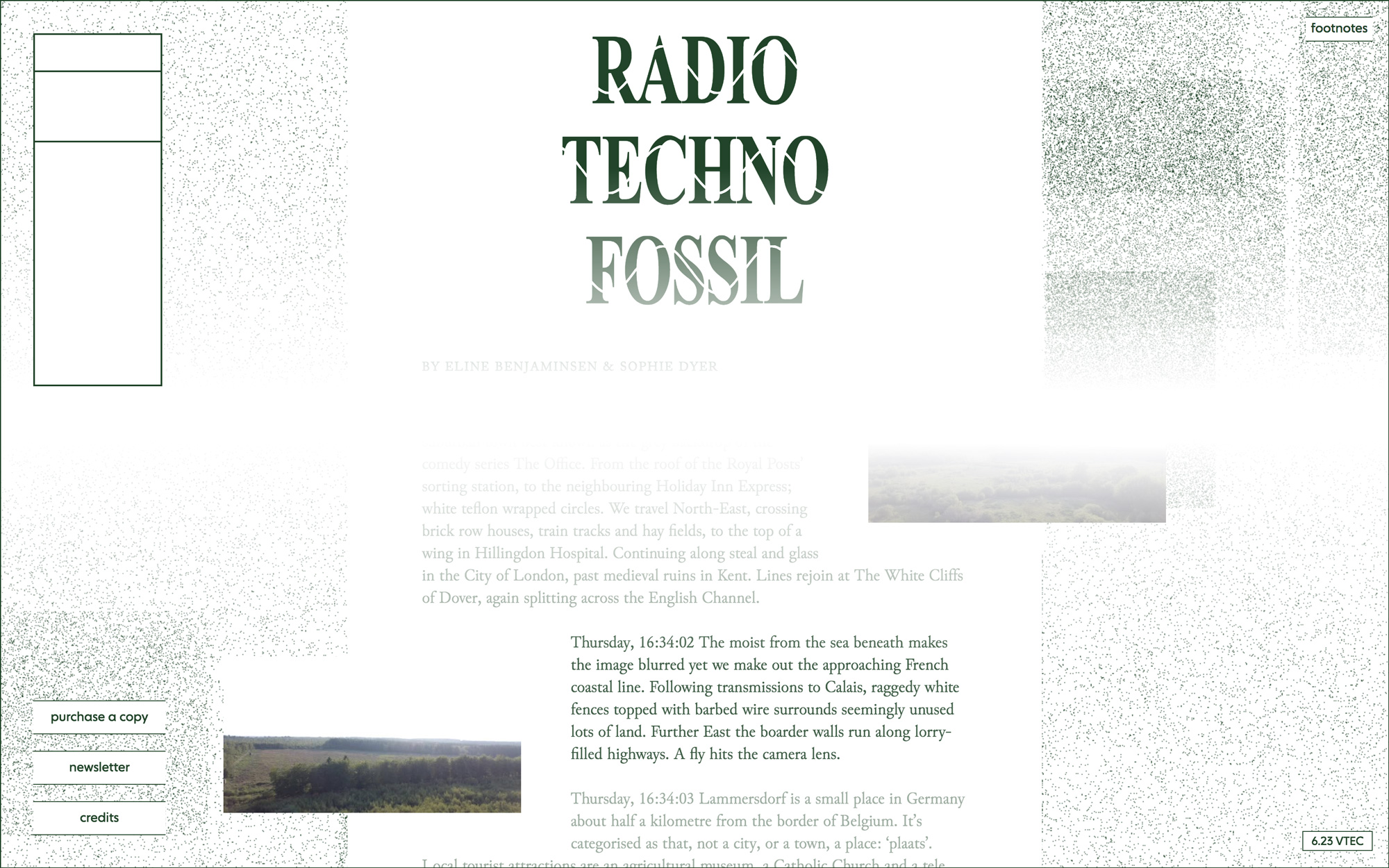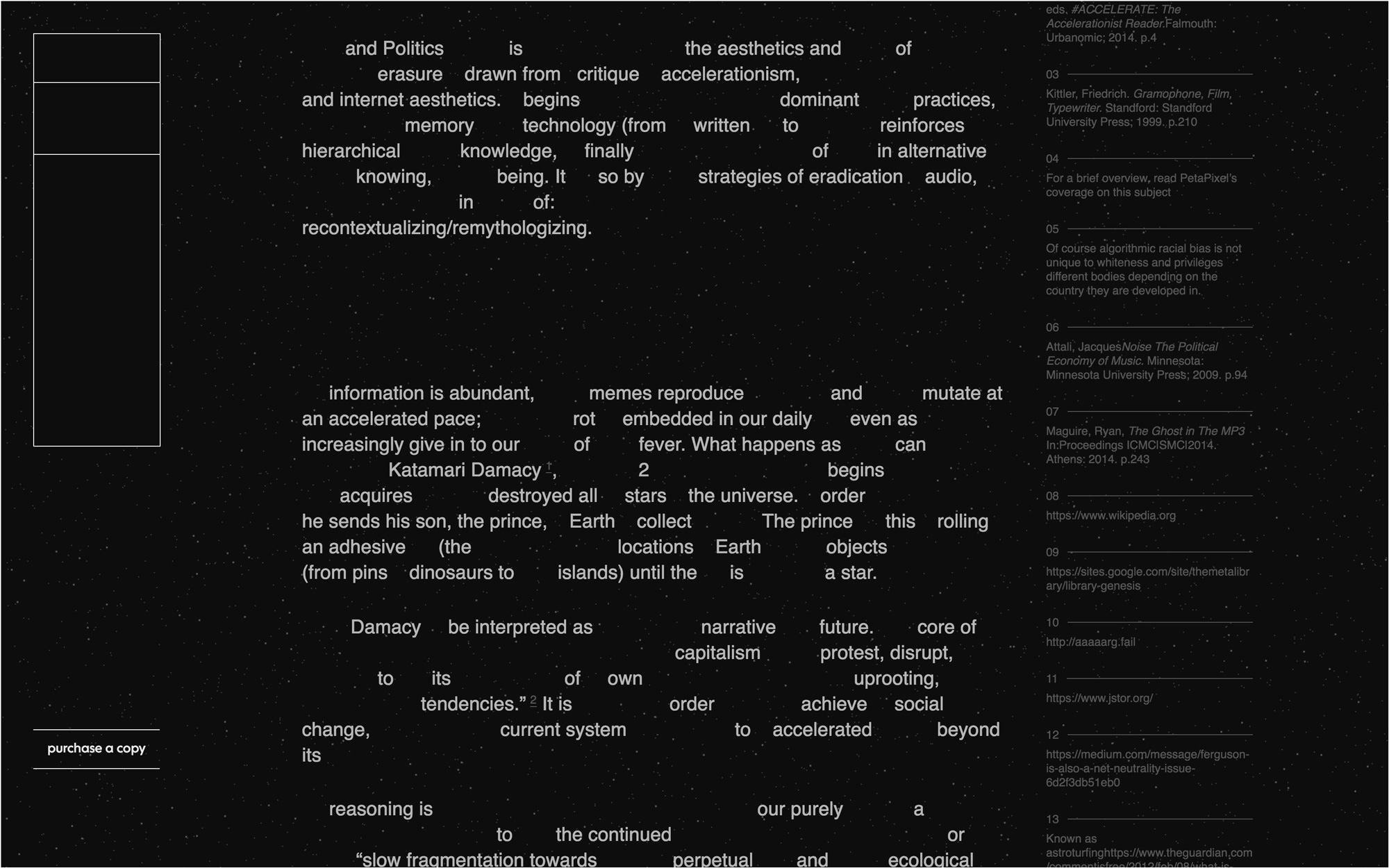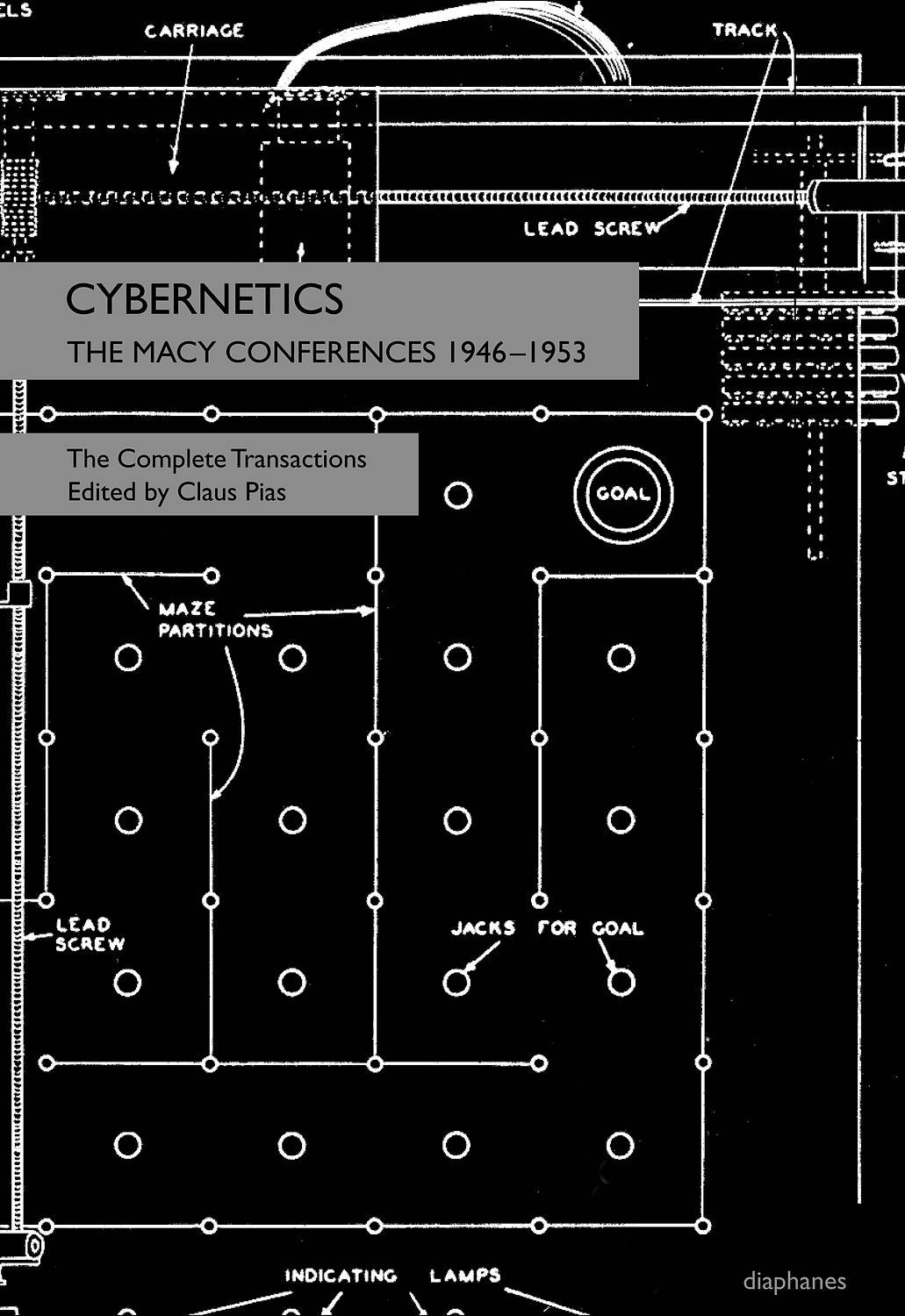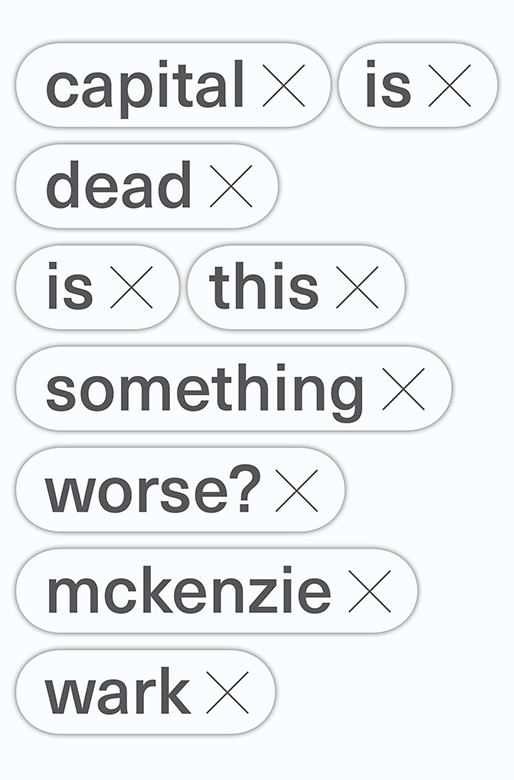oneacre.online (2017–)
Filed under artist publishing | Tags: · aesthetics, artificial intelligence, information, internet, radio, technology


“oneacre.online is an experimental publishing and distribution project that utilises an online platform to seed unprintable text-based works by emerging artists. The project explores the possibilities of hyper-publishing in a series of commissioned publications. Thematically the first four place themselves in the online world of constant updates and refresh buttons that, as theorist Wendy Chun observes, “exist at the bleeding edge of obsolescence. We thus forever try to catch up, updating to remain the same”. The publications use the omnidirectional online terrain and actions that are native to it — such as refreshing, instantly available to edit, easily erasable, highlighting, copy-pasting and non linear navigation — to explore and critically evaluate visions and versions of power systems by tracing the politics of technological infrastructures. Hidden in places as traditional as archives, as often used as smart phone applications, omnipresent and inescapable as the financial market and as quiet and evasive as the transfer of information in narrative structures.
The series showcased in December 2017 Poetics and Politics of Erasure by Yun Ingrid Eel, a multidisciplinary research paper on the aesthetics and politics of erasure. In March 2018, Artificial Intelligence Never Has a Headache by Karina Zavidova, a long-form about the fear of AI spread by the media, and the market of productivity-enhancing tools it has fuelled. In July 2018 Radio, Techno, Fossil by Eline Benjaminsen & Sophie Dyer, the story of a radio-image as it traverses the bounds of the Earth’s surfaces, atmospheres and techno-geographies. And in September 2018, Meaning Seeking Animals by Lisa van Casand, a subjective collection of a wide range of perspectives on the transfer of information.”
Made by Stef Kors, Titus Knegtel, Victoria Douka-Doukopoulou
Published 2017-2018
HTML (limited preview; use the direct links above to access publications)
Comment (0)Cybernetics: The Macy Conferences 1946-1953: The Complete Transactions (2016)
Filed under book, proceedings | Tags: · cybernetics, information, information theory, mathematics

“Between 1946 and 1953, the Josiah Macy, Jr. Foundation sponsored a series of conferences aiming to bring together a diverse, interdisciplinary community of scholars and researchers who would join forces to lay the groundwork for the new science of cybernetics. These conferences, known as the Macy conferences, constituted a landmark for the field. They were the first to grapple with new terms such as information and feedback and to develop a cohesive and broadly applicable theory of systems that would become equally applicable to living beings and machines, economic and cognitive processes, and many scholarly disciplines. The concepts that emerged from the conferences come to permeate thinking in many fields, including biology, neurology, sociology, ecology, economics, politics, psychoanalysis, linguistics, and computer science.
This book contains the complete transcripts of all ten Macy conferences and the guidelines for the conference proceedings. These transcripts are supplemented with an introduction by Claus Pias that charts the significance of the Macy conferences to the history of science.”
Edited and with a Foreword by Claus Pias
Publisher Diaphanes, Zürich, 2016
ISBN 9783037345986, 3037345985
734 pages
Publisher
Distributor
WorldCat
PDF (5 MB, updated on 2020-8-24)
Comment (0)McKenzie Wark: Capital Is Dead: Is This Something Worse? (2019)
Filed under book | Tags: · capitalism, data, information, labour, marxism, nature, neoliberalism, production, theory

“It’s not capitalism, it’s not neoliberalism—what if it’s something worse?
In this radical and visionary new book, McKenzie Wark argues that information has empowered a new kind of ruling class. Through the ownership and control of information, this emergent class dominates not only labour but capital as traditionally understood as well. And it’s not just tech companies like Amazon and Google. Even Walmart and Nike can now dominate the entire production chain through the ownership of not much more than brands, patents, copyrights, and logistical systems.
While techno-utopian apologists still celebrate these innovations as an improvement on capitalism, for workers—and the planet—it’s worse. The new ruling class uses the powers of information to route around any obstacle labor and social movements put up. So how do we find a way out? Capital Is Dead offers not only the theoretical tools to analyze this new world, but ways to change it. Drawing on the writings of a surprising range of classic and contemporary theorists, Wark offers an illuminating overview of the contemporary condition and the emerging class forces that control—and contest—it.”
Publisher Verso, London, 2019
ISBN 9781788735308, 1788735307
202 pages
Book launch (with Natasha Lennard, video, 90 min).
Interviews with author: Verso Books (video, 2019, 16 min), Red May TV (with Alexander Zevin, Jasper Bernes and Wendy Liu, video, 2020, 110 min), Guy Mannes-Abbot (Tank, 2019).
Reviews: Garrett Pierman (Marx & Philosophy, 2020), Ben Tripp (Hyperallergic, 2020), Madeleine Collier (Afterimage, 2020), Colin Drumm (Cosmonaut, 2019), Mark Steven (Sydney Review of Books, 2020), Steve Hanson (Manchester Review of Books, 2020), Antonio Navarro (Teknokultura, 2020, ES).
HTML
PDF (9 MB, added on 2019-11-22)

